After a college basketball season unlike any we’ve ever seen, we’re about to enter a college basketball offseason unlike any we’ve ever seen. In addition to the usual NBA draft decisions, the transfer portal is filling up at an unprecedented rate, and every player in the country has been granted another year of eligibility, if they so choose. Throw in a likely one-time transfer waiver and rosters today will look drastically different three months from now.
But that isn’t enough to stop the Way-Too-Early Top 25!
Some ground rules before moving forward. For the most part, we’re using ESPN’s NBA draft rankings as a guideline. If a player is ranked inside the top 60, we’re projecting him to leave. There are some exceptions. As for the extra year of eligibility, we’re still projecting the vast majority of seniors to leave; again, with a couple of exceptions. These rankings will shift and change throughout the offseason, but here’s our first guess at the 2021-22 landscape.
Hurry up and dive in — there are only about 220 days until the 2021 Champions Classic.
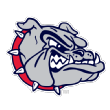 1. Gonzaga Bulldogs
1. Gonzaga Bulldogs
Gonzaga fell just short in 2020-21, but it deserves the benefit of the doubt when it comes to early rankings. Thirty-plus wins in five straight seasons and six straight second-weekend NCAA tournament appearances tends to do that. Mark Few’s team will lose at least three starters in lottery picks Jalen Suggs and Corey Kispert as well as likely draft pick Joel Ayayi, and Drew Timme and Andrew Nembhard could both test the waters. But if Timme and Nembhard come back, Few has the core of yet another national title contender, and Timme will be the overwhelming Wooden Award favorite. Anton Watson was a key part of the rotation, and the staff is confident that the young players — including Julian Strawther and Dominick Harris — will take a step forward. The Bulldogs also bring in five-star guard Hunter Sallis and are the heavy favorites to land No. 1 overall prospect Chet Holmgren. The Zags also are likely to hit the transfer market and are the perceived leader for North Carolina’s Walker Kessler. There will be plenty of talent in Spokane, Washington, once again.
Projected starting lineup:
Andrew Nembhard (9.1 PPG)
Hunter Sallis (No. 13 in ESPN 100)
Dominick Harris (3.1 PPG)
Anton Watson (7.1 PPG)
Drew Timme (19.0 PPG)
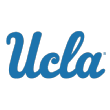 2. UCLA Bruins
2. UCLA Bruins
A bang-bang charge call or 40-footer shy of potentially playing for the national championship, I’m banking on UCLA’s March momentum carrying over to next season. That expectation hinges heavily on what Johnny Juzang decides to do, however. March’s breakout star raised his stock as much as any player in college basketball over the past three weeks and could head to the NBA. But if Juzang comes back, Mick Cronin should have back every notable player from the Final Four team. Jaime Jaquez established himself as a go-to scorer and Tyger Campbell is the perfect point guard for Cronin. The Bruins should also get a boost from the potential healthy return of Chris Smith and the addition of five-star wing Peyton Watson. The question will be whether UCLA is more like the team that won five games in 12 days to get to the Final Four or the team that lost four in a row to finish 17-9 before Selection Sunday.
Projected starting lineup:
Tyger Campbell (10.2 PPG)
Johnny Juzang (15.5 PPG)
Jaime Jaquez (12.1 PPG)
Chris Smith (12.6 PPG)
Cody Riley (9.8 PPG)
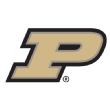 3. Purdue Boilermakers
3. Purdue Boilermakers
Matt Painter did a terrific job with the Boilermakers this season, finishing 13-6 in the Big Ten before falling in overtime in both the Big Ten and NCAA tournaments. But there are zero seniors on the roster, and only a couple of backup frontcourt players have transferred out so far. So all five starters in should be back for Purdue. It starts with Trevion Williams, a preseason All-America candidate who can be dominant down low. Painter has a deep and versatile perimeter group, with Jaden Ivey a prime breakout candidate as a sophomore. Ivey started the final 12 games of the season, scoring in double figures in all but two of those games and scoring 26 points in the NCAA tournament. Painter can go big with 7-foot-4 Zach Edey, he can have a more traditional lineup with Mason Gillis at the forward spot, or he could go small with four perimeter scorers.
Projected starting lineup:
Eric Hunter (8.5 PPG)
Brandon Newman (8.0 PPG)
Jaden Ivey (11.1 PPG)
Sasha Stefanovic (9.3 PPG)
Trevion Williams (15.5 PPG, 9.1 RPG)
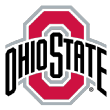 4. Ohio State Buckeyes
4. Ohio State Buckeyes
The Buckeyes were ranked near the top five for most of the season, before late-season inconsistency saw them lose four in a row to end the regular season, then make a run to the Big Ten title game — and then lose in the first round of the NCAA tournament to 15-seed Oral Roberts. Three key players from that group are back: potential preseason All-American E.J. Liddell and starters Duane Washington Jr. and Justice Sueing. Chris Holtmann addressed his point guard situation by going out and getting Penn State transfer Jamari Wheeler, while Zed Key will see an increase in minutes down low with Kyle Young likely gone. Ohio State was one of the best offensive teams in the country this past season, but its defense was lacking. The Buckeyes were 10th in the Big Ten in defensive efficiency and allowed eight of their final 10 opponents to score more than one point per possession. That needs to change.
Projected starting lineup:
Jamari Wheeler (6.8 PPG at Penn State)
Duane Washington Jr. (16.4 PPG)
Justice Sueing (10.7 PPG)
E.J. Liddell (16.2 PPG)
Zed Key (5.2 PPG)
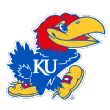 5. Kansas Jayhawks
5. Kansas Jayhawks
One of the best teams in the country over the final month of the season, Kansas should celebrate Bill Self’s lifetime contract with a much more consistent group. The Jayhawks are likely to lose senior Marcus Garrett, but most of the rotation should return. Jalen Wilson and David McCormack both had long stretches where they looked like stars, while Christian Braun and Ochai Agbaji are stalwart starters. The big question could be at point guard without Garrett. But DaJuan Harris showed flashes of his two-way ability this past season, while former Louisville signee Bobby Pettiford was a top-100 prospect at the high school level. Self also has Bryce Thompson, who came into school with the reputation as a big-time scorer but struggled with injuries as a freshman. Kansas’ frontcourt should be loaded, though, with top-50 prospects Zach Clemence and K.J. Adams entering the fold.
Projected starting lineup:
DaJuan Harris Jr. (2.0 PPG)
Christian Braun (9.8 PPG)
Ochai Agbaji (14.2 PPG)
Jalen Wilson (12.1 PPG)
David McCormack (13.4 PPG, 6.1 RPG)
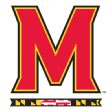 6. Maryland Terrapins
6. Maryland Terrapins
Mark Turgeon struck early on the transfer market, landing Rhode Island guard Fatts Russell and Georgetown big man Qudus Wahab in a matter of hours. Russell and Wahab should answer two of the bigger question marks I had about the Terps: point guard play and a consistent interior presence. I’m assuming senior Darryl Morsell leaves, but Turgeon brings back three full-time starters in Eric Ayala, Aaron Wiggins and Donta Scott — plus Hakim Hart, who was a key player down the stretch and started 10 of Maryland’s 11 games. There’s plenty of talent on this roster, and Turgeon did an impressive job with the Terps this past season, guiding them to the NCAA tournament despite limited preseason expectations. If Russell can regain his 2019-20 form and Wahab adapts quickly to the Big Ten, Maryland has a potential Final Four contender.
Projected starting lineup:
Fatts Russell (14.7 PPG at Rhode Island)
Eric Ayala (15.1 PPG)
Aaron Wiggins (14.5 PPG)
Donta Scott (11.0 PPG)
Qudus Wahab (12.7 PPG, 8.2 RPG at Georgetown)
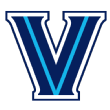 7. Villanova Wildcats
7. Villanova Wildcats
This ranking hinges heavily on Collin Gillespie. The All-America-caliber point guard is a senior and could decide his Villanova career is over, but after tearing his MCL and missing his final NCAA tournament, there’s a lot of talk that Gillespie could ultimately take advantage of the extra year and return to the Wildcats. The fact he’s going to be rehabbing for the next few months and might not get to work out at all for NBA teams could be a factor, too. If Gillespie is back, this is a surefire top-10 team. If he isn’t and Jeremiah Robinson-Earl goes pro as expected, then Jay Wright could have some issues. But Justin Moore is back, Caleb Daniels is back, and Brandon Slater and Bryan Antoine showed some promise down the stretch of the season. Dhamir Cosby-Roundtree should also add some physicality down low after missing this past season due to injury. Villanova also brings in a highly touted recruiting class with three top-100 prospects.
Projected starting lineup:
Collin Gillespie (14.0 PPG, 4.6 RPG)
Justin Moore (12.9 PPG)
Caleb Daniels (9.6 PPG)
Brandon Slater (3.8 PPG)
Dhamir Cosby-Roundtree (1.5 PPG in 2019-20)
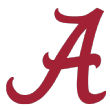 8. Alabama Crimson Tide
8. Alabama Crimson Tide
If I had told you two years ago that Alabama would lose three starters and another key rotation player and still be ranked in the preseason 10, you would have thought I was insane. But that’s the impact Nate Oats has had on the program in Tuscaloosa. Herb Jones, John Petty, Jordan Bruner and Alex Reese are all likely gone, but Jahvon Quinerly should slot into the starting lineup and Jaden Shackelford and Joshua Primo should thrive with a few more shots. The Crimson Tide also bring in five-star guard J.D. Davison, one of the most explosive players in high school basketball the past couple of years. Davison should immediately become a big-time scorer and playmaker. One potential weakness comes on the inside, where James Rojas and Juwan Gary will have to step forward, along with junior college transfer Langton Wilson.
Projected starting lineup:
Jahvon Quinerly (12.9 PPG, 3.2 APG)
J.D. Davison (No. 11 in ESPN 100)
Jaden Shackelford (14.0 PPG)
Joshua Primo (8.1 PPG)
James Rojas (2.9 PPG, 2.6 RPG)
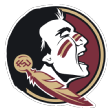 9. Florida State Seminoles
9. Florida State Seminoles
Are we still going to do this? You know, that thing where we underestimate Leonard Hamilton and Florida State in the preseason and then they go out and win 25 games and compete for an ACC title and win multiple games in March? The Seminoles have gotten out of the first weekend in three straight NCAA tournaments and likely would have made it four if the 2020 dance hadn’t been canceled. I’m expecting them to lose M.J. Walker and Scottie Barnes, while Raiquan Gray is also testing the NBA draft waters. But Anthony Polite is back, Balsa Koprivica is back and Hamilton will also have his usual assortment of 7-footers to throw at teams. He also brings in a deep and talented recruiting class, led by Houston transfer Caleb Mills, the preseason AAC Player of the Year this past season. Freshmen Matthew Cleveland and Jalen Warley should add serious scoring pop on the perimeter.
Projected starting lineup:
Caleb Mills (9.8 PPG at Houston)
Jalen Warley (No. 46 in ESPN 100)
Matt Cleveland (No. 30 in ESPN 100)
Anthony Polite (10.1 PPG)
Balsa Koprivica (9.1 PPG, 5.6 RPG)
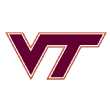 10. Virginia Tech Hokies
10. Virginia Tech Hokies
COVID-19 impacted the Hokies’ finish to the season more than most power conference teams, as they missed 17 days in February, then played two games, then missed the rest of the regular season before suiting up again in the ACC and NCAA tournaments. Prior to the pauses, Mike Young’s team was 13-4 with wins over Virginia and Villanova. And most of the key players from that group should be back for another year in Blacksburg. All-ACC big man Keve Aluma is the go-to-guy down low, and Young will once again surround him with Tyrece Radford, Nahiem Alleyne, Hunter Cattoor and Justyn Mutts. At point guard, Wofford transfer Storm Murphy will get the keys. Murphy played for Young at Wofford and was a first-team All-SoCon pick this past season before deciding to reunite with Young at Tech. He’s a completely different player than outgoing point guard Wabissa Bede, but he’ll add improved shooting. I’m high on this team.
Projected starting lineup:
Storm Murphy (17.8 PPG, 4.3 APG)
Tyrece Radford (12.2 PPG)
Nahiem Alleyne (11.1 PPG)
Justyn Mutts (9.5 PPG, 6.4 RPG)
Keve Aluma (15.2 PPG, 7.9 RPG)
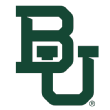 11. Baylor Bears
11. Baylor Bears
There’s a good chance that Scott Drew loses four of five starters from the national champs, but it’s hard to set low expectations for a team that has won 54 games in two seasons. MaCio Teague and Mark Vital are seniors, while Jared Butler and Davion Mitchell are projected first-round picks in the NBA draft. That’s some serious talent and experience leaving Waco, Texas. But we’ve seen how impactful the Bears’ bench could be this season, with Adam Flagler on the perimeter and Matthew Mayer and Jonathan Tchamwa Tchatchoua up front. Flo Thamba also should return as the lone starter. Drew always has reinforcements ready to enter the program, and next season is no different. Kendall Brown and Langston Love are both five-star prospects, while the Bears are actively pursuing impact guards in the portal. I don’t think Baylor is going to be a top-five team all season long like it’s been the past two campaigns, but I’m also not expecting a massive drop-off from the champs.
Projected starting lineup:
Adam Flagler (9.0 PPG)
Langston Love (No. 23 in ESPN 100)
Kendall Brown (No. 20 in ESPN 100)
Matthew Mayer (8.2 PPG)
Jonathan Tchamwa Tchatchoua (6.3 PPG, 5.0 RPG)
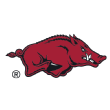 12. Arkansas Razorbacks
12. Arkansas Razorbacks
I don’t necessarily expect this projected lineup to be the one the Razorbacks trot out on opening night. Eric Musselman has worked the transfer portal better than arguably any coach in college basketball over the last several years, and Arkansas is once again very active in the portal so far. They’ve already landed Pittsburgh transfer Au’diese Toney and are in the mix for an assortment of perimeter players. A point guard is high on the list for the Razorbacks. If they land an impact player to run the show, this ranking could look low. Devo Davis had a partial breakout in the NCAA tournament, locking up on defense and hitting the winning shot against Oral Roberts. J.D. Notae is ideal in an instant offense role off the bench, while Jaylin Williams looks to be a gem down low at both ends of the floor for the Razorbacks. I wouldn’t expect potential lottery pick Moses Moody or seniors Justin Smith and Jalen Tate to return, but I’m confident Arkansas will add reinforcements.
Projected starting lineup:
KK Robinson (2.6 PPG)
Devo Davis (8.5 PPG)
JD Notae (12.8 PPG)
Au’diese Toney (14.4 PPG at Pittsburgh)
Jaylin Williams (3.7 PPG, 4.7 RPG)
 13. Duke Blue Devils
13. Duke Blue Devils
Here’s one of two teams I really have no idea what to do with, and I’m sure you can guess the other one, too. But Duke is coming off a 13-11 season and seems likely to lose its two best players to the NBA in Matthew Hurt and DJ Steward. So, while I’m a huge fan of top-five prospect Paolo Banchero and think he’s maybe the most college-ready prospect in the class, expecting him to immediately replace Hurt’s 18 and 6 from day one is difficult. The same goes for five-star prospects Trevor Keels and A.J. Griffin replacing Steward. On the positive side, guys like Jeremy Roach and Mark Williams have a year under their belts, and Wendell Moore brings some leadership. The Blue Devils are expected to pursue a couple of more players, as well. Despite the generally underwhelming campaign, they did win six of their last nine games to provide some optimism entering next season.
Projected starting lineup:
Jeremy Roach (8.7 PPG)
Wendell Moore (9.7 PPG)
A.J. Griffin (No. 14 in ESPN 100)
Paolo Banchero (No. 3 in ESPN 100)
Mark Williams (7.1 PPG, 4.5 RPG)
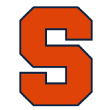 14. Syracuse Orange
14. Syracuse Orange
Another team I might be overrating based on their March performance, but the Orange’s performance every March makes me feel confident this won’t look terrible a year from now. Buddy Boeheim emerged as a legitimate star, and Boeheim, Alan Griffin and Quincy Guerrier are one of the better offensive trios you’ll find in the ACC. The loss of Kadary Richmond to the transfer portal stings, since he’s a high-level playmaker and a likely NBA prospect. Jim Boeheim will roll with Joe Girard at the point guard spot, give him another shot-maker. Villanova transfer Cole Swider will bring shooting to the frontcourt and could enable Boeheim to go small with five scorers for stretches. But Boeheim generally prefers a bigger body in the middle of the zone, which seems like a weakness right now. Jesse Edwards and Frank Anselem could operate in that role if Marek Dolezaj leaves and Syracuse doesn’t hit the portal for a big.
Projected starting lineup:
Joseph Girard III (9.8 PPG)
Buddy Boeheim (17.8 PPG)
Alan Griffin (13.3 PPG, 5.8 RPG)
Quincy Guerrier (13.7 PPG, 8.4 RPG)
Jesse Edwards (1.9 PPG, 2.6 RPG)
 15. St. Bonaventure Bonnies
15. St. Bonaventure Bonnies
It’s not easy to gauge how good the Bonnies really were this past season. They only played two nonconference games, against Akron and Hofstra, and then were hardly competitive against LSU in the NCAA tournament. But they mostly rolled through the Atlantic 10 with only a few bumps in the road and looked dominant in the conference tournament. And Mark Schmidt has everyone back from that team. Kyle Lofton is a star in the backcourt, and all five starters — Lofton, Jaren Holmes, Dominick Welch, Jalen Adaway, Osun Osunniyi — averaged double figures. One of the issues Schmidt had was a lack of production outside his starting five. The Bonnies have addressed that early in the transfer market, adding high-major transfers Quadry Adams (Wake Forest) and Karim Coulibaly (Pittsburgh). Neither is expected to be a huge impact player, but if they can provide depth and versatility, that’s all Schmidt needs.
Projected starting lineup:
Kyle Lofton (14.4 PPG, 5.5 APG)
Jaren Holmes (13.8 PPG)
Dominick Welch (11.4 PPG)
Jalen Adaway (12.2 PPG)
Osun Osunniyi (10.7 PPG, 9.4 RPG)
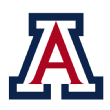 16. Arizona Wildcats
16. Arizona Wildcats
A mostly forgotten team this past season, Arizona was a likely NCAA tournament team for most of the campaign despite having nothing to play for due to a self-imposed ban. It’s not clear the Wildcats will be able to play in next season’s NCAA tournament either (or if Sean Miller will still be the coach), but until a punishment is handed down, I’m rolling with them as a potential second-weekend team. Miller’s teams in the past have been known for defense, but this version was terrific offensively. James Akinjo is an excellent playmaker at the point of attack, and the Wildcats have an assortment of versatile frontcourt players to give teams problems. Benedict Mathurin, Kerr Kriisa, Dalen Terry, Azuolas Tubelis and Jordan Brown all made impacts during their first year in Tucson, and Miller also brings in a solid recruiting class led by top-100 prospect Shane Nowell. Expect Arizona to hit the portal, too.
Projected starting lineup:
James Akinjo (15.6 PPG)
Dalen Terry (4.6 PPG)
Bennedict Mathurin (10.8 PPG)
Azuolas Tubelis (12.2 PPG, 7.1 RPG)
Jordan Brown (9.4 PPG)
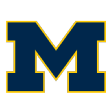 17. Michigan Wolverines
17. Michigan Wolverines
This is another tough read. The Wolverines had five seniors in their top seven, while Franz Wagner is a potential lottery pick and is also expected to leave. Could any of those seniors return to Ann Arbor for another year? Isaiah Livers was injured toward the end of the campaign and missed the NCAA tournament, so he’s in a similar position as Collin Gillespie — but Livers has higher NBA draft stock and already tested the waters once last season. Juwan Howard will have to build around Hunter Dickinson next season, which isn’t a bad place to start, but there’s precious little returning besides the big man. Brandon Johns was great in the NCAA tournament, while Terrance Williams and Zeb Jackson were highly touted recruits who played sparingly this past season. Michigan does bring in the nation’s No. 1-ranked recruiting class, led by top-10 prospects Caleb Houstan and Moussa Diabate, along with top-50 guards Frankie Collins and Kobe Bufkin. Collins could be the key. There’s not much back on the perimeter.
Projected starting lineup:
Frankie Collins (No. 40 in ESPN 100)
Zeb Jackson (1.0 PPG)
Caleb Houstan (No. 7 in ESPN 100)
Brandon Johns (4.9 PPG)
Hunter Dickinson (14.1 PPG, 7.4 RPG)
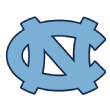 18. North Carolina Tar Heels
18. North Carolina Tar Heels
Ideally, there won’t be much attrition from Chapel Hill in the aftermath of Hubert Davis’ elevation to the top job at UNC. If that’s the case, the Tar Heels should be fine in year one of the post-Roy Williams era. Caleb Love needs to become more consistent and less mistake-prone at the point guard spot, but R.J. Davis and Kerwin Walton provided good perimeter pop, and Leaky Black is a versatile player. It’s unclear what the frontcourt will look like after the NBA departure of Day’Ron Sharpe, the transfer of Walker Kessler and the expected graduation of Garrison Brooks. But Davis also might move away from the two-big lineups that have been staples under Williams. Armando Bacot is still set to return, for now, and he should be a good enough anchor in the post.
Projected starting lineup:
Caleb Love (10.5 PPG, 3.6 APG)
R.J. Davis (8.4 PPG)
Kerwin Walton (8.2 PPG)
Leaky Black (5.6 PPG)
Armando Bacot (12.3 PPG, 7.8 RPG)
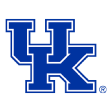 19. Kentucky Wildcats
19. Kentucky Wildcats
Here’s the second team I really have no idea where to rank; I just assume John Calipari can’t have a second dreadful season in a row. But they went 9-16 this past season and have already seen B.J. Boston, Isaiah Jackson and Terrence Clarke declare for the NBA draft (although Jackson made it clear he’s leaving the door open for a return to Lexington), while freshmen Devin Askew and Cam’ron Fletcher entered the transfer portal. It’s unclear what will happen with seniors Olivier Sarr and Davion Mintz, but Mintz has spoken about potentially returning. For now, we’ll assume both leave. Calipari reloading in the spring is nothing new, and I don’t think Davidson transfer Kellan Grady will be the final addition to the roster. Grady and Oscar Tshiebwe should add some shooting and toughness, respectively, next season. Five-star Daimion Collins will be an impact player down low. Two big keys will be improved point guard play — whether from incoming freshman Nolan Hickman or someone from the portal — and more consistent outside shooting; will Dontaie Allen see a bigger role?
Projected starting lineup:
Nolan Hickman (No. 28 in ESPN 100)
Kellan Grady (17.1 PPG at Davidson)
Dontaie Allen (5.4 PPG)
Keion Brooks (10.3 PPG, 6.8 RPG)
Oscar Tshiebwe (8.5 PPG, 7.8 RPG at West Virginia)
 20. Oregon Ducks
20. Oregon Ducks
Like Arkansas and a couple of other programs, Oregon is another situation where I just assume it will find players in the spring to fill out the roster. Dana Altman does it every year, and he gets the team humming during the second half of the season. And he’ll probably do it again in 2021-22. Eugene Omoruyi, Chris Duarte, L.J. Figueroa and Amauri Hardy are all seniors, while Chandler Lawson is transferring. But Will Richardson leads the returnees, which also includes double-figure scorer Eric Williams. N’Faly Dante only played six games last season before tearing an ACL, while Franck Kepnang had impressive moments in the NCAA tournament. The Ducks also bring in top-10 prospect Nate Bittle, who will bring versatility to the frontcourt. Given all the production potentially leaving, Oregon could use an upgrade in its wing scoring. Whether that’s via returnee Aaron Estrada or on the transfer market, it should be priority No. 1 in Eugene.
Projected starting lineup:
Will Richardson (11.3 PPG)
Aaron Estrada (3.1 PPG)
Eric Williams (10.0 PPG)
Nate Bittle (No. 9 in ESPN 100)
N’Faly Dante (8.2 PPG)
 21. Colorado State Rams
21. Colorado State Rams
The season didn’t end in ideal fashion for Niko Medved’s club, stumbling in the season finale against Nevada, getting bounced in the Mountain West semifinals by Utah State and being one of the last teams left out of the NCAA tournament. But the Rams had no seniors and should return every player from this season’s group. Isaiah Stevens and David Roddy form one of the best inside-outside tandems in the Mountain West, while Kendle Moore and Adam Thistlewood are experienced options returning to the starting lineup. Colorado State had the league’s best offense in conference play, but when the Rams struggled at that end of the floor toward the end of the season and in the NIT, the defense wasn’t good enough to will them to victory. They will have to be better guarding inside the arc and rebounding at that end of the floor. But I think Colorado State takes the next step into the NCAA tournament.
Projected starting lineup:
Kendle Moore (10.5 PPG)
Isaiah Stevens (15.3 PPG, 5.4 APG)
Adam Thistlewood (9.1 PPG)
David Roddy (15.9 PPG, 9.4 RPG)
James Moors (5.9 PPG)
 22. Michigan State Spartans
22. Michigan State Spartans
Despite beating Illinois, Ohio State and Michigan in the final two weeks of the season to sneak into the NCAA tournament, it was a relatively disappointing season in East Lansing after the early-season expectations. Tom Izzo will have some roster attrition, too. Rocket Watts has already transferred, while Josh Langford has used up his eligibility and Aaron Henry is a projected NBA draft pick. But the Spartans went out and landed Northeastern transfer Tyson Walker to run the show, and Walker should combine with five-star prospect Max Christie to provide a much-needed backcourt infusion. One huge key is the status of Emoni Bates. A generational talent, Bates has long been considered a candidate to reclassify into the 2021 class. He could still decide to do that and enroll in college in the fall — although the buzz around him has always been that he’s also considering skipping college altogether. If Bates does wind up in East Lansing next fall, he will take this team to another level.
Projected starting lineup:
Tyson Walker (18.8 PPG at Northeastern)
Max Christie (No. 15 in ESPN 100)
Gabe Brown (7.2 PPG)
Malik Hall (5.0 PPG)
Joey Hauser (9.7 PPG)
 23. Belmont Bruins
23. Belmont Bruins
A 21-game winning streak from December to February was all for naught, as the Bruins lost the final two games of the regular season and were then blown out in the Ohio Valley Conference tournament title game by Morehead State. But Casey Alexander has pretty much everyone back from this team, including all five starters and his top seven scorers. Nick Muszynski, who missed the last couple games of the season with an injury, leads the way down low, while Luke Smith is a terrific outside shooter and Grayson Murphy sets the table from the point guard spot. Belmont had one of the most efficient offenses in the country this past season, ranking third nationally in 2-point percentage and making more than 35% of its 3-pointers in league play. But they’re going to have to make a splash in nonconference play or they will be walking a similar tightrope to this season in league play — where one or two losses will require them to win the automatic bid.
Projected starting lineup:
Grayson Murphy (10.9 PPG)
Luke Smith (12.7 PPG)
Ben Sheppard (10.5 PPG)
Caleb Hollander (9.3 PPG)
Nick Muszynski (15.0 PPG)
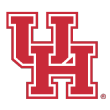 24. Houston Cougars
24. Houston Cougars
Another one along the same lines as West Virginia and Baylor and a couple of others, this is a ranking with full faith in Kelvin Sampson figuring things out. Houston had four seniors in its rotation this season, including DeJon Jarreau, and Quentin Grimes could decide to use his late-season momentum and enter the NBA draft. Marcus Sasser does return, but he’s the only starter. Tramon Mark was a consistent contributor off the bench and Reggie Chaney was one of four big men in the rotation, and both of them will be expected to see increased minutes. But Houston has won at least one game in each of the past three NCAA tournaments and has won at least 21 games in each of the last six seasons, and I find it hard to believe a Sampson-coached team won’t be the American Athletic Conference favorite. Grimes or Fabian White returning for another season would be a huge boost.
Projected starting lineup:
Marcus Sasser (13.5 PPG)
Tramon Mark (8.0 PPG)
Cameron Tyson (6.5 PPG)
Jamal Shead (3.3 PPG)
Reggie Chaney (4.6 PPG)
 25. West Virginia Mountaineers
25. West Virginia Mountaineers
I’m not one to doubt Bob Huggins, given his consistent success regardless of talent, but with Miles McBride entering his name into the NBA draft, Taz Sherman being a senior and Emmitt Matthews and Jordan McCabe transferring, there’s not a lot of proven offensive production in Morgantown right now. Sean McNeil is a lights-out shooter and Derek Culver is one of the best big men in college basketball, and that’s about it offensively. I’d project Jalen Bridges to take a step forward and become a more consistent scoring option, but the Mountaineers’ fourth-best returning scorer is Gabe Osabuohien at 1.7 points per game. So Huggins will need to find some weapons — and a new point guard if McBride decides to keep his name in the draft. Kedrian Johnson is back, and they’re bringing in four-star recruit Seth Wilson as another option. There are some questions in Morgantown.
Projected starting lineup:
Kedrian Johnson (1.3 PPG)
Sean McNeil (12.2 PPG)
Jalen Bridges (5.9 PPG)
Gabe Osabuohien (1.7 PPG)
Derek Culver (14.3 PPG, 9.4 RPG)
Next in line:
Tennessee Volunteers
Wichita State Shockers
Notre Dame Fighting Irish
Virginia Cavaliers
UConn Huskies
Credit: Source link